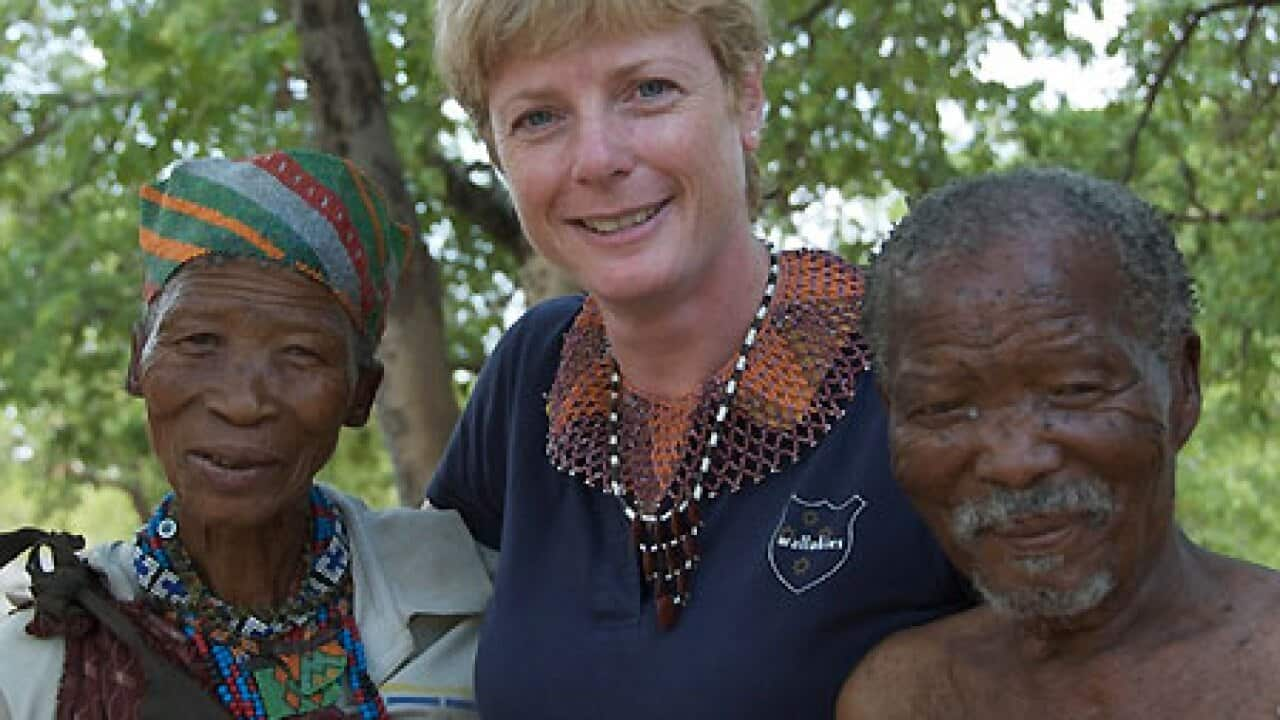Australian scientists have led a world-first project to sequence the genetic code of indigenous Africans, tracing more than a million variations stemming from the 'root of mankind'.
Researchers mapped the genome of Nobel Laureate Archbishop Desmond Tutu - an ethnic Bantu - along with four Bushmen from remote parts of the Kalahari Desert.
Comparison of their DNA showed that Tutu has Bushman heritage - making him part of the longest-surviving lineage of modern humans.
Tutu, 78, is said to have voiced "astonishment and delight" at the news of his links with the Bushmen - hunter-gatherers who inhabit the Kalahari Desert.
They are the oldest known continuous community of modern Homo sapiens, having lived in this sparsely-populated region for some 27,000 years.
The project has added more than 1.3 million new genetic variations to the database of Human Genome Variation which, up until now, was largely made up of DNA from Europeans.
Africa 'root of mankind'
Archbishop Tutu contributed his genetic code as a means to continue his "lifetime's work... fighting for equal rights for the people of southern Africa, and globally, for indigenous peoples", said Dr Vanessa Hayes, co-head of the research.
"Africa holds the key to a huge amount of understanding... it is the root of mankind," she said.
"We can predict there will be just as much genetic diversity in Australia's aboriginal community, and that would tell another important story of our genetic heritage".
The genome research is aimed at expanding our understanding of genetic diversity and inherited disease.
The results of the $2.2 million project will be handed for free to the scientific community, where it should contribute to future breakthroughs in genetic illness and disease prevention.
Dr Hayes, who was born in South Africa's Cape Town but now lives in Australia, took two years to complete the work, travelling by 4WD with fellow researchers into remote desert.
"A bushman and a Bantu, living side by side, are as divergent or different to each other as that Bantu is from... a European," said Dr Hayes, of the Children's Cancer Institute Australia at the University of NSW in Sydney.
'Wealth of diversity'
"And if you took two bushman from two different linguistic groups, they are as different (genetically) to each other as a European is from an Asian.
"We've always known the continent of Africa is a wealth of diversity... this is the first time we've had the entire DNA sequence to say 'wow, this is the difference'."
The project was a collaboration with scientists from Penn State University in the US, and its results will be published in the prestigious journal Nature.
Before this study, only nine individual human genomes had been fully sequenced.
The majority are of European heritage, with the others coming from China, Korea and the Yoruba people of Nigeria.
"Indigenous people have been left out of medical research efforts based on genetics," said Dr Hayes.
"As a result of this project, southern Africans will immediately be included in genome-wide association studies, increasing our ability to examine regionally significant diseases."
Share

